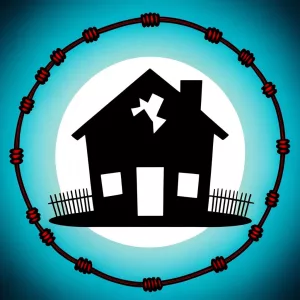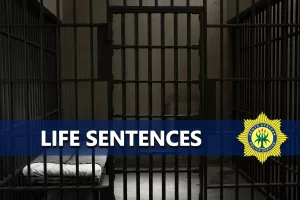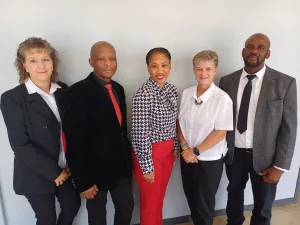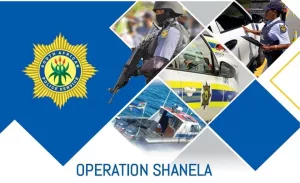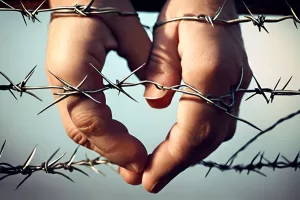Anele Mdoda, a popular radio host, had a scary experience during an Uber ride in Cape Town. She used a feature to ask her driver not to talk, but the driver made an inappropriate comment about sexual violence. Anele shared her feelings on Instagram Live, shining a light on safety issues and how technology can help or hurt us. Her story highlights how important it is for everyone to feel safe in public spaces and reminds us that we need to be aware of how we use ridesharing apps.
The legacy of forced removals in South Africa, especially during apartheid, leaves deep wounds in the nation’s heart. Communities like Sophiatown were torn apart, leading to economic struggles for the displaced. As South Africa works towards healing, it aims for justice and equality for all its people. With a commitment to combating corruption and protecting the vulnerable, the country moves forward, determined to create a brighter, united future where everyone can thrive.
In Embalenhle, South Africa, a dark nightmare unfolded as Themba Prince Shongwe committed terrible crimes, including rapes and murders, from 2016 to 2018. The community lived in fear as he targeted innocent girls, causing heartbreak and loss. Finally, justice was served when he was found guilty and sentenced to nine life terms in prison, bringing relief to the grieving families and a sense of safety back to the community. This victory shines a light on the importance of standing against violence and working together to protect the vulnerable.
Colonel Celeste van der Klashorst is a fearless leader in South Africa’s fight against violence and crime, especially those targeting women and children. With over thirty years of service, she created Child Protection Units and now leads the National SECI Unit, tackling serious issues like serial rape and child pornography. Her team’s recent success in a major operation has led to arrests and rescued children, showing the powerful impact of her work. Colonel van der Klashorst inspires others with her passion for justice, making her a shining example of hope and resilience in the battle for a safer society.
Champion of Justice: Sergeant Pule Morake’s Battle Against Gender-Based Violence in Wolmaransstad
In the small town of Wolmaransstad, Sergeant Pule Morake is a shining hero against genderbased violence. With fierce determination, he investigates crimes and helps victims find their voices. His biggest success came when he helped put a serial rapist behind bars for life, showing that justice can prevail. Morake inspires the community to stand together, reminding everyone that fighting against violence is a shared responsibility. His work fills the town with hope for a safer future where women and children can live without fear.
The South African Police Service (SAPS) is taking strong steps to fight crime and keep communities safe. Their big operation, OPERATION SHANELA, led to over 13,000 arrests in just a week, targeting serious crimes like murder and rape. SAPS is also focusing on issues like genderbased violence and drug crimes, with many arrests made for these offenses. With efforts to tackle illegal immigration and improve road safety, SAPS shows a commitment to protecting the public and creating a safer South Africa. Their teamwork and determination in the face of challenges highlight the spirit of resilience in the country.
In today’s world, enjoying art can be tricky when the artist has a troubled past. Professor Mamokgethi Phakeng faced backlash for deciding to attend a Chris Brown concert, even as she supports ending genderbased violence. Critics called her a hypocrite for enjoying music from someone accused of serious wrongdoings, yet she argued that liking the art doesn’t mean she supports the artist’s actions. This situation sparks important questions about how we balance personal enjoyment with our responsibilities to society, pushing us to think deeply about how we engage with art and the messages it sends.
A bright new hope for justice has emerged in South Africa as a recent court ruling changes the way consent is viewed in cases of genderbased violence. The Pretoria High Court declared parts of the Sexual Offences Act unconstitutional, shifting the responsibility of proving consent from victims to the accused. This breakthrough aims to better protect victims and ensure fairness in the justice system. With the backing of the Embrace Project, this ruling represents a significant step forward in the fight against genderbased violence, igniting a powerful movement towards equality and justice in the nation. As South Africa navigates this crucial moment, there is a renewed call for change that champions the rights and dignity of all.
Chris Brown’s upcoming concert in South Africa is sparking intense debate because of his past violence against women, particularly his assault on Rihanna in 2009. Advocacy group Women For Change is protesting his performance, arguing that it contradicts efforts to fight genderbased violence, especially in a country where such issues are alarmingly high. The conversation highlights the struggle between celebrating celebrities and holding them accountable for their actions. As South Africa reflects on its values, this situation serves as a reminder to prioritize the safety and dignity of all individuals over celebrity culture.
Chris Brown’s legacy in South Africa stirs up heated debate because of his past, especially the violent incident with Rihanna in 2009. Many activists believe his concerts send the wrong message in a country struggling with high rates of violence against women. Groups like Women For Change argue that celebrating artists with violent histories harms abuse survivors. As South Africa holds its annual campaign against genderbased violence, the timing of Brown’s performances raises questions about how society views art versus ethics. This situation pushes us to think about how we honor talent while supporting those affected by abuse.
Charlize Theron is a Hollywood actress and founder of the Charlize Theron Africa Outreach Project. She is dedicated to eradicating genderbased violence (GBV) and challenges societal norms to safeguard women and girls from GBV. Theron’s personal experience with domestic violence has shaped her activism, and she continues to be a prominent voice in the fight against GBV, which affects one in three women in their lifetime. Through her initiatives and public platform, Theron shows that much more needs to be done to address this global issue.
The ongoing legal battle relates to Luyanda Botha’s alleged 2014 attempted rape case, which resurfaced after his conviction for the murder of Uyinene Mrwetyana in 2019. Botha’s defense attorney seeks discharge under Section 174 of the Criminal Procedure Act, claiming ‘no evidence’ linking his client to the 2014 incident, while the National Prosecuting Authority is expected to put up a strong opposition. The case highlights the critical need to address violence against women and the ongoing fight for justice.
Unveiling the Hardships Faced by GBV Victims: A Deep Dive into South African Authorities
A report from the Office of the Public Protector has revealed the poor assistance provided to victims of genderbased violence (GBV) by South African authorities, including the police service and departments of social development and justice. The investigation was triggered by the tragic death of Altecia Kortje and her daughter after Kortje was dismissed when seeking a protection order. The report found dilapidated court buildings, malfunctioning equipment, a lack of victimfriendly spaces, and deficiencies in the GBV support initiatives. The Public Protector has recommended training for the police service and detailed project plans from all departments to address these concerns.
Women for Change, a nonprofit organization, is making progress in combating genderbased violence and femicide in South Africa, despite financial challenges. Their advocacy and support for survivors have helped create a supportive community and garnered nearly 400,000 followers on social media. However, funding deficits threaten the organization’s survival, but a BackaBuddy campaign has garnered support from over 183 unique donors. While progress has been made, the increasing rates of femicide and GBV remind us of the work that remains.
The Khuseleka OneStop Centre is a new establishment within the Saartjie Baartman Centre for Women and Children that offers a range of services for victims of crime and violence, including trauma therapy, legal advice, healthcare, and substance abuse treatment programs. Despite facing challenges in acquiring support and recognition, the centre stands as a beacon of hope and a testament to the fight against genderbased violence and femicide. The inauguration coincided with the signing of the National Council of GenderBased Violence and Femicide Bill, indicating progress in both policy formulation and practical application.
South Africa’s government has passed two important laws the National Council on GenderBased Violence and Femicide Bill and the National Prosecuting Authority Amendment Bill to combat corruption and genderbased violence. The National Council on GBVF will coordinate efforts to tackle the crisis, while the NPA Amendment Bill grants permanent status to the Investigating Directorate against Corruption to improve the fight against corruption. These legislative advancements represent the government’s commitment to creating a more equitable society, and it is a shared responsibility of all stakeholders to back these efforts.



